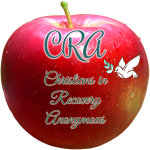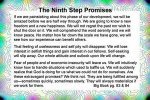From Dual Recovery Anonymous& Alcoholics Anonymous Subject; Medications and recovery. here's the straight scoop.>
A.A. World services, Inc.






"Medications and Recovery
D.R.A. members often go to Alcoholics Anonymous and Narcotics Anonymous meetings for additional support and fellowship. Often men and women who have been diagnosed with a dual disorder say that they have received misguided advice about their diagnosis and the use of medication at other Twelve Step meetings. Some have been told that they do not have an emotional or psychiatric illness, and that they are experiencing merely self-pity or some other character defect "You don't need those pills; they'll cause you more problems" and "If you're taking pills, then you're in relapse and not really sober". Individuals who have followed such advice have experienced relapse: some have been hospitalized; some have returned to alcohol or drug use; some have attempted or even completed suicide. To say the least, it can be very confusing. Though we can not speak for other organizations, their literature makes clear that these types of statements are not the official position of A.A., N.A., or any other Twelve Step recovery groups that we are aware of." (c.o. Dual Recovery Anonymous World Network Central Office.)On page 133 of the Big Book of A.A. it says in part:
"Now about health: A body badly burned by alcohol does not often recover overnight nor do twisted thinking and depression vanishing in a twinkling we are convinced that a spiritual mode of living is a most powerful health restorative. We, who have recovered from serious drinking, are miracles of mental health. But we have seen remarkable transformations in our bodies. Hardly one of our crowd now shows any dissipation.
But this does not mean that we disregard human health measures. God has abundantly supplied this world with fine doctors, psychologists, and practitioners of various kinds. Do not hesitate to take your health problems to such persons. Most of them give freely of themselves, that their fellows may enjoy sound minds and bodies. Try to remember that though God has wrought miracles among us, we should never belittle a good doctor or psychiatrist. Their services are often indispensable in treating a newcomer and in following his case afterward."
Reprinted from Alcoholics Anonymous, with permission of But this does not mean that we disregard human health measures. God has abundantly supplied this world with fine doctors, psychologists, and practitioners of various kinds. Do not hesitate to take your health problems to such persons. Most of them give freely of themselves, that their fellows may enjoy sound minds and bodies. Try to remember that though God has wrought miracles among us, we should never belittle a good doctor or psychiatrist. Their services are often indispensable in treating a newcomer and in following his case afterward."
A.A. World services, Inc.






-
2
- Show all








